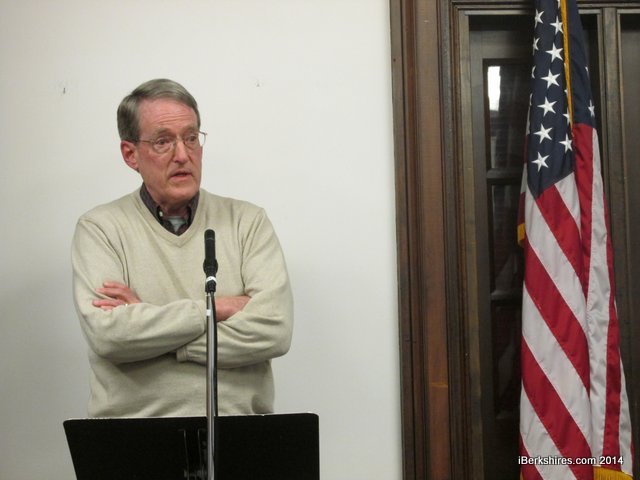Village Ambulance Recovering From Embezzlement
 Dr. Erwin Stuebner told the board that new safeguards are in place to ensure Village Ambulance's financial security. Dr. Erwin Stuebner told the board that new safeguards are in place to ensure Village Ambulance's financial security. |
WILLIAMSTOWN, Mass. — Village Ambulance Service is recovering from a major theft of its funding.
The Selectmen on Monday heard a report from the president of the board of the nonprofit service, who explained that the agency was making strides to recover from the damage done by the theft of $240,000 over a three-year period by its former general manager and business manager.
Dr. Erwin Stuebner told the board that new financial safeguards are in place, the board has been reconstituted to bring in individuals with business expertise, and the former employees are making full restitution as part of a plea agreement with the district attorney's office.
Albert Miller pleaded guilty two weeks ago and placed on three years' probation. The case of his wife, Cara Miller, the former office manager, is still pending.
"It's been a very frustrating time for the board, the president and our dedicated employees," Stuebner said, adding that rumors about the embezzlement were flying around town for some period of time before the first criminal case was resolved earlier this month.
"Now, we're able to tell people that our excellent service continued uninterrupted."
Stuebner also talked about the challenges to that service that were presented with the closure of North Adams Regional Hospital.
The loss of the local hospital means it takes more time, fuel and wear and tear on ambulances to transport patients. Stuebner said Village Ambulance works in conjunction with North Adams Ambulance Service to make sure both communities are covered in the event that either agency's vehicles are tied up in Pittsfield on runs to Berkshire Medical Center.
The loss of NARH had another, less obvious impact on Village Ambulance, Stuebner explained.
The Williamstown ambulance service lost some of its revenue from the transfer of patients from North Adams Regional to their homes or nursing homes. Those trips, now from Berkshire Medical Center, instead have been assigned to ambulances in Central Berkshire County, he said.
VAS is negotiating to regain some of that business, Stuebner said.
As for the other impacts of the NARH closure, some of that will be mitigated when Berkshire Medical Center opens its satellite emergency department at the former hospital, hopefully some time this spring, he said.
Stuebner used his appearance before the board to renew calls that the ambulance service's needs be taken into account by the town's Public Safety Building Study Committee and expressed frustration that the nonprofit was not being given proper consideration by the panel.
The committee has been focusing on the possibility of a shared fire and police department facility.
Tags: ambulance service, embezzlement, NARH,















